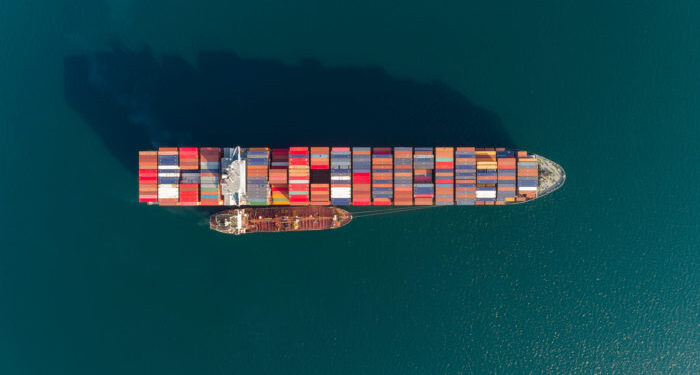Britannia P&I Club highlights the importance of shipowners must conduct a comprehensive risk assessment of every bunker operation as part of their Safety Management System (SMS) before starting.
Operational considerations
According to Britannia, disputes arising from bunker quality are multifaceted, often hindered by insufficient evidence including representative samples and fuel analysis reports. Thus, before initiating the bunkering operation, shipowners should verify and reasonably ensure compliance with the following:
- Compliance with safety management system (SMS): Adherence to the owner’s SMS procedures for bunkering, including the completion of thorough risk assessment prior to the operation.
- Bunker plan: The ship should prepare a comprehensive bunker plan outlining key details such as the designated bunker tank(s), the order for filling these tanks, allocations for various fuel grades, recommended transfer rates, procedures for topping up, and the status of the fuel oil overflow tank (usually kept empty during bunkering). Whenever possible, take the new bunkers into empty tanks. Thoughtful and meticulous planning can help minimise risks associated with cross-contamination.
- Bunker survey: If appointed, the surveyor should perform an independent investigation to identify the cause of any quality issues and discrepancies, if present. Additionally, they would also assist in the sampling and sealing process.
- Recording & documentation: The ship should document all relevant/significant events during the bunkering operation, including start/stop times, flow rates, and any unexpected stoppages.
- Preparation, inspection, monitoring: Thoroughly plan for the preparation of the receiving bunker tank(s), prioritising tasks such as inter-tank transfers if operationally critical, before bunkering to ensure alignment with industry standards. Conduct careful inspections to verify the suitability and condition of bunker tanks. Maintain vigilant monitoring throughout bunkering. Before and after bunkering operations, visually identify and inspect non-nominated bunkering tanks to rule out any ‘cargo passing’ that may be caused by faulty valves or other issues, which could lead to cross-contamination and quality concerns.
- Additional precautions: If ‘off-spec’ bunkers have been delivered, a case-by-case approach should be followed, considering the severity and type of specification that is ‘off’. This involves evaluating compliance with international safety regulations. Consulting experts, conducting additional lab tests, and engaging with engine manufacturers are essential steps. In some cases, flag/class authorities may also be involved.
Should the chief engineer have any concerns or find the results unsatisfactory, a letter of protest must be issued, clearly stating the reason, and an entry must be made in the engine logbook to document the concern/circumstances. Do not sign the bunker delivery note (BDN). Instead, the ship should promptly contact the owners, charterers, and/or the local club’s correspondent to determine the next course of action.
Contractual considerations
Prioritising due diligence in supplier selection entails thorough vetting procedures and reputation assessments. Understanding the terms outlined in the charter party, particularly bunker clauses, is crucial. Contracts should clearly specify the required fuel specifications for delivery. In the event of a quality dispute, designating the “referee” sample holding contractual significance is vital.
ISO 8217 standard
ISO 8217 sets specific parameters to determine whether the delivered bunker fuel can be safely consumed. It is recommended to apply the latest version of the ISO 8217 standard to best protect the owner’s interests. Older versions of the ISO 8217 standard are still in use but may provide less protection. Clause 5 of the ISO 8217 standard, for example, which aims to protect the owner against contamination not otherwise identified by the standard ISO 8217, varies from version to version.
However, the ISO 8217 standards, irrespective of version, still have their limitations. Ever-changing components for blending could potentially introduce new types of ‘contaminants’ into the fuel.
As explained by Bill Stamatopoulos, Global Business Development Director at VeriFuel, this edition of ISO 8217 has undergone significant revisions, taking into consideration industry needs and the most recent industry experiences and knowledge. It brings substantial changes to fuel grades and parameters, detailed in four dedicated tables:
- Marine Distillates, including bio-distillate marine fuels
- Marine Residuals with sulfur content up to 0.50% (ULSFO, VLSFO)
- Bio-residual marine fuels
- Marine Residuals with sulfur content higher than 0.50% (HSFO)
To address potential stability issues, it is advisable to consume the fuels within three months of bunkering, following proper quality testing. Since their characteristics may change during storage, fuels that meet specifications when bunkered could become off-spec when used. With the typical time bar in bunker supply contracts set at 30 days, proving such claims may become increasingly difficult for owners.
Sampling point & considerations
The process of proper sampling and sealing is critical, especially in the context of quality disputes. The following guidelines serve to maintain the integrity of the sampling process:
-
Pre-bunkering checks: Prior to hose connection, it is recommended to inspect manifolds and hoses for cleanliness and absence of contamination or foreign materials. Such due diligence helps prevent quality issues from the outset.
-
Sealing and integrity: When sealing drip sampling points to cubitainers, employ a method that makes tampering evident through broken seals. Regular monitoring of manifold connections and seals is recommended to maintain the integrity of the sampling process.
-
Sampling protocol: Typically, five samples are collected through continuous drip sampling at a designated, mutually agreed-upon, and monitored location during bunkering. These samples serve contractual purposes, though the ship or surveyor may opt to take additional samples. The different samples include:
- MARPOL sample – To prove compliance with MARPOL’s sulphur regulations. It should be noted that this sample may only be removed by the vessel by or after approval from a proper authority.
- Bunker supplier’s sample
- Ship’s retention sample
- Ship’s laboratory analysis sample
- Bunker surveyor’s sample – Collected by the surveyor (if in attendance)
-
Documentation: If additional samples are taken beyond the typical five, ensure their corresponding seal numbers are accurately recorded in the BDN as well. This step is essential for traceability and supports dispute resolution.
To strive for consistent quality across all samples, distribute the fuel homogeneously into the sample bottles through several passes. (See below photos for visual guidance).































































